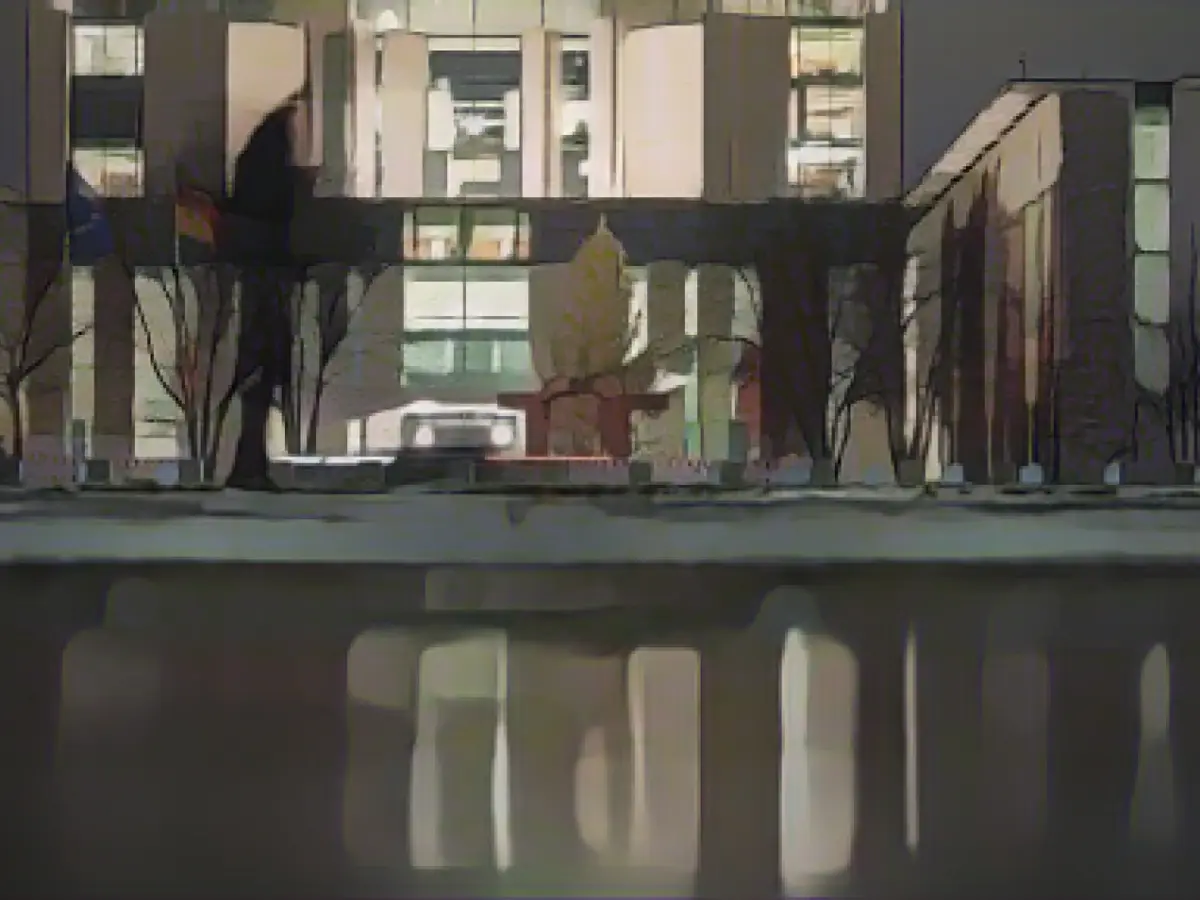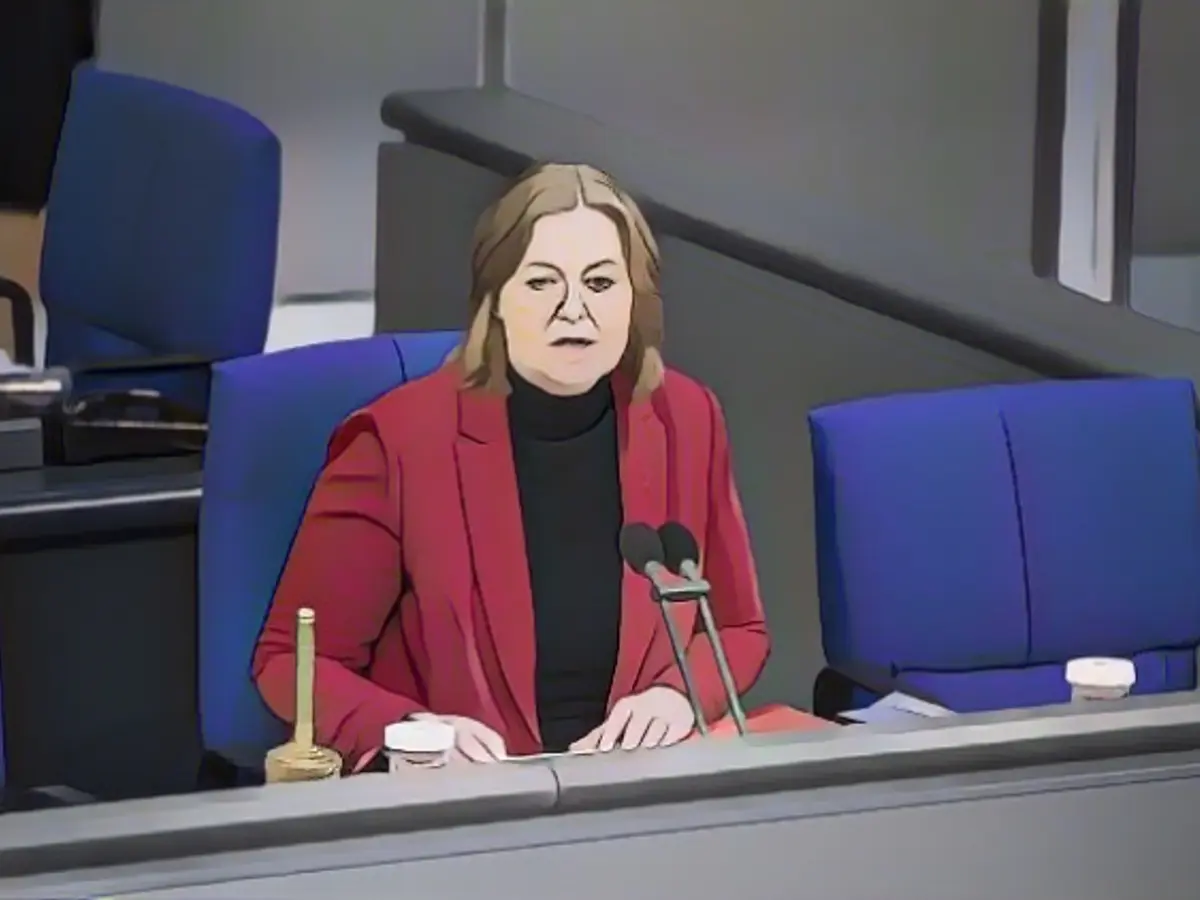Budget Woes: CDU/CSU Cranks Up the Pressure on Coalition Government
The CDU/CSU is ramping up the pressure on the coalition government amidst the financial crisis. Carsten Linnemann, CDU General Secretary, implored Chancellor Olaf Scholz (SPD) to call for a vote of confidence. During a ZDF program, Linnemann suggested that a vote could be better for Scholz and the nation as a whole, declaring, "I think it would be better for the Chancellor to put the question of confidence to the German Bundestag."
Meanwhile, the Parliamentary Secretary of the CDU/CSU group, Thorsten Frei, sent a letter to Bundestag President Bärbel Bas (SPD) demanding that she intervene in the current situation. In the correspondence, Frei argued that the coalition's behavior had been marked by a lack of planning and stubbornness.
Linnemann elaborated on ZDF television, stating that if Scholz wins the vote of confidence, the coalition government would need to devise a strategy for the next two years. "It can't go on like this." However, if Scholz loses, Linnemann posited that the citizens would need to contemplate a fresh start, asserting, "We require honesty now. This nation cannot afford to persist in this fashion for two years."
Olaf Scholz, Robert Habeck (Greens), and Christian Lindner (FDP) have been locked in a battle over how to bridge a 17 billion euro gap in the budget for 2024, brought on by the Federal Constitutional Court's budget ruling. The SPD parliamentary group leadership no longer believes that a Bundestag resolution on the 2024 budget is feasible this year.
Economist Marcel Fratzscher expressed concern over the escalation of the situation and the potential impact on the German economy. He advocated for swift resolution of the crisis and adoption of a 2024 federal budget to prevent further deterioration. Fratzscher emphasized that stability and adherence to promises were essential priorities for the German government.
The Taxpayers' Association called for significant savings in the budget, stating that the timing of approving the 2024 federal budget was secondary and that the coalition's focus should be on structural savings. Linnemann suggested during ZDF programming that if Scholz emerges victorious from the vote of confidence, the coalition government would need to devise a strategy for the following two years. He emphasized that the status quo was not tenable, stating, "It cannot go on like this."
Background: Debt Brake and Economic Challenges
The budget crisis in Germany is rooted in several factors, including the debt brake - a constitutional provision limiting annual federal deficits to 0.35% of the GDP and prohibiting new net debt accumulation by federal states. This rule, introduced in 2009, has been a subject of debate, particularly during the COVID-19 pandemic and the war in Ukraine, as it restricts government investment in critical areas.
Germany's economic growth has been sluggish, with a projected 0.3% growth in 2025 compared to an earlier forecast of 1.1%. Energy costs, soaring due to high energy prices and the loss of affordable Russian gas, have further burdened the economy. Structural challenges, such as high unemployment and the need for significant investments in infrastructure and skilled labor, add to the economic woes.
The traffic light coalition government collapsed in November 2024 due to disagreements over the budget and the debt brake. Potential future coalition configurations include the CDU/CSU with either the SPD or the Greens. These governments will need to address the debt brake and consider its potential reform to navigate the economic challenges.
Potential Outcomes
Possible outcomes of budget negotiations include reforming the debt brake by loosening the debt threshold or utilizing the escape clause to suspend the ceiling in extraordinary situations. Furthermore, there is a strong call for investment in critical areas such as climate, defense, and infrastructure, which the current debt brake restricts.
The commitment to increased defense spending to meet NATO objectives is another pressing concern. With these potential outcomes in mind, the German government will need to strike a delicate balance between financial stability and investment in critical areas to revitalize the economy and tackle structural challenges.





